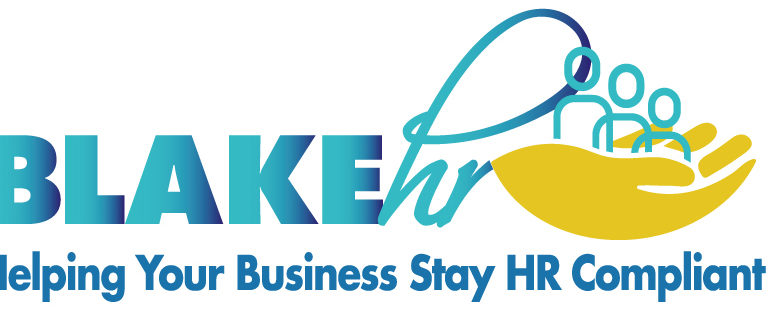Enhancing Employee Inclusion in Key Decision-Making Processes
The success of any organisation now often hinges on how well its employees are engaged and included. One critical aspect of engagement is whether employees feel included in key decisions. When employees feel they have a voice in decisions, they’re more likely to be committed, motivated, and aligned with the company’s goals. But, how often do you stop to ask yourself: Do our employees truly feel included in the decision-making process?
In this blog post, we’ll explore the importance of including your employees in key decision-making processes. We’ll discuss how fostering a sense of inclusion can lead to higher engagement, improved innovation, and better business outcomes. Additionally, I’ll share practical strategies to ensure every employee feels their voice is heard and valued.
The Importance of Inclusion

First and foremost, while inclusion in decision-making is about making people feel good, it’s so much more. It’s tapping into the diverse perspectives and ideas that employees bring to the table. These different viewpoints can lead to more innovative solutions and better outcomes. When employees feel included, they are more likely to contribute ideas and insights that can lead to better business results. As a result, this sense of inclusion encourages a collaborative environment, where employees work together more effectively.
However, if employees feel excluded from key decisions, it can lead to disengagement. Disengaged employees are less likely to be productive, which can have a negative impact on the organisation’s bottom line. Moreover, when employees are not involved in decisions, they may feel that their opinions don’t matter. Consequently, this can result in a lack of trust between employees and management, making it harder to achieve organisational goals.
Signs That Employees Feel Excluded

One clear sign that employees might feel excluded is a lack of participation in meetings or discussions. If employees are not actively participating, it could be because they don’t feel that their input is valued. Another sign is high turnover rates. When employees don’t feel connected to the organisation, they are more likely to leave. Additionally, if you notice a lack of innovation or new ideas coming from your team, it could indicate that they aren’t feeling encouraged to contribute.
Furthermore, employees who feel excluded may be less engaged in their work. This can manifest as a lack of enthusiasm, poor performance, or even absenteeism. If you observe these signs, it might be time to reevaluate how you include your employees in decision-making processes.
How to Include Employees in Key Decisions
Inclusion in decision-making doesn’t have to be complicated. Small changes can make a big difference. Here are a few strategies that can help:
1. Open Communication
Encourage open communication by regularly seeking feedback from your employees. This can be done through surveys, suggestion boxes, or regular team meetings. When employees feel their voices are heard, they’re more likely to feel included.
2. Collaborative Decision-Making
Whenever possible, involve employees in the decision-making process. This could be through brainstorming sessions or by forming committees that represent different departments. By doing this, you ensure that different perspectives are considered.
3. Transparency
Be transparent about how decisions are made. When employees understand the decision-making process, they’re more likely to feel included, even if they weren’t directly involved.
4. Recognition
Recognise and reward employees who contribute ideas or who are actively involved in decision-making. This can be as simple as a mention during a meeting or as significant as a bonus. Typically, recognition reinforces the importance of their contributions.
5. Training and Development
Provide training and development opportunities that empower employees to take on more responsibility. When employees have the skills and knowledge to contribute to decisions, they’re more likely to feel included.
The Benefits of Inclusion

When employees feel included in key decisions, the benefits are numerous. For one, it encourages a culture of trust and respect. Employees are more likely to trust their leaders and feel respected when their opinions are considered. Additionally, it leads to better decision-making. When diverse perspectives are considered, the quality of decisions improves. This, in turn, leads to better business outcomes.
Moreover, inclusion in decision-making can lead to higher employee retention rates. When employees feel valued and included, they’re more likely to stay with the organisation. This not only reduces turnover costs but also ensures that the company retains its top talent.
Finally, a workplace that values inclusion is often more innovative. Employees who feel included are more likely to contribute creative ideas and solutions. This can give the organisation a competitive edge in the market.
Conclusion
In conclusion, the question of whether your employees feel included in key decisions is one that every organisation should consider. Inclusion isn’t just fluffy HR speak; it’s essential for the success of the organisation. By fostering an environment where employees feel included, you can unlock their full potential, leading to better outcomes for the entire organisation. It’s time to take a closer look at your decision-making processes and ensure that every employee feels their voice is heard.
Want to know more? I’ll post more on this soon, so look out for regular updates. You can also complete my contact us form or book a call now to find out how BlakeHR can help you to increase employee engagement.


Are you ready to explore How enhancing employee inclusion can benefit decision making in your organisation?
If this guide has inspired you to get started, what are you waiting for? And if it’s left you with more questions or you’d like some assistance getting started, get in touch. we’d be happy to help.
Give us a call on 07422 727229 or contact us using the form below - we will be happy to answer any questions.


